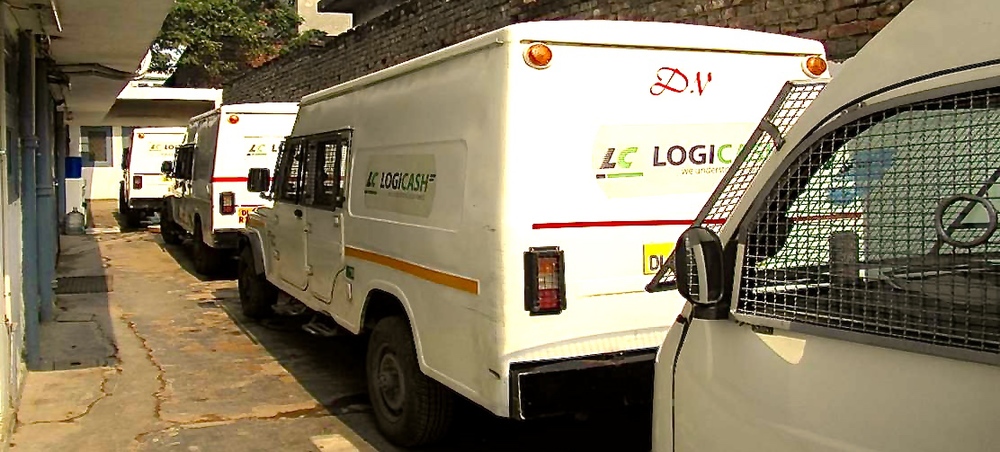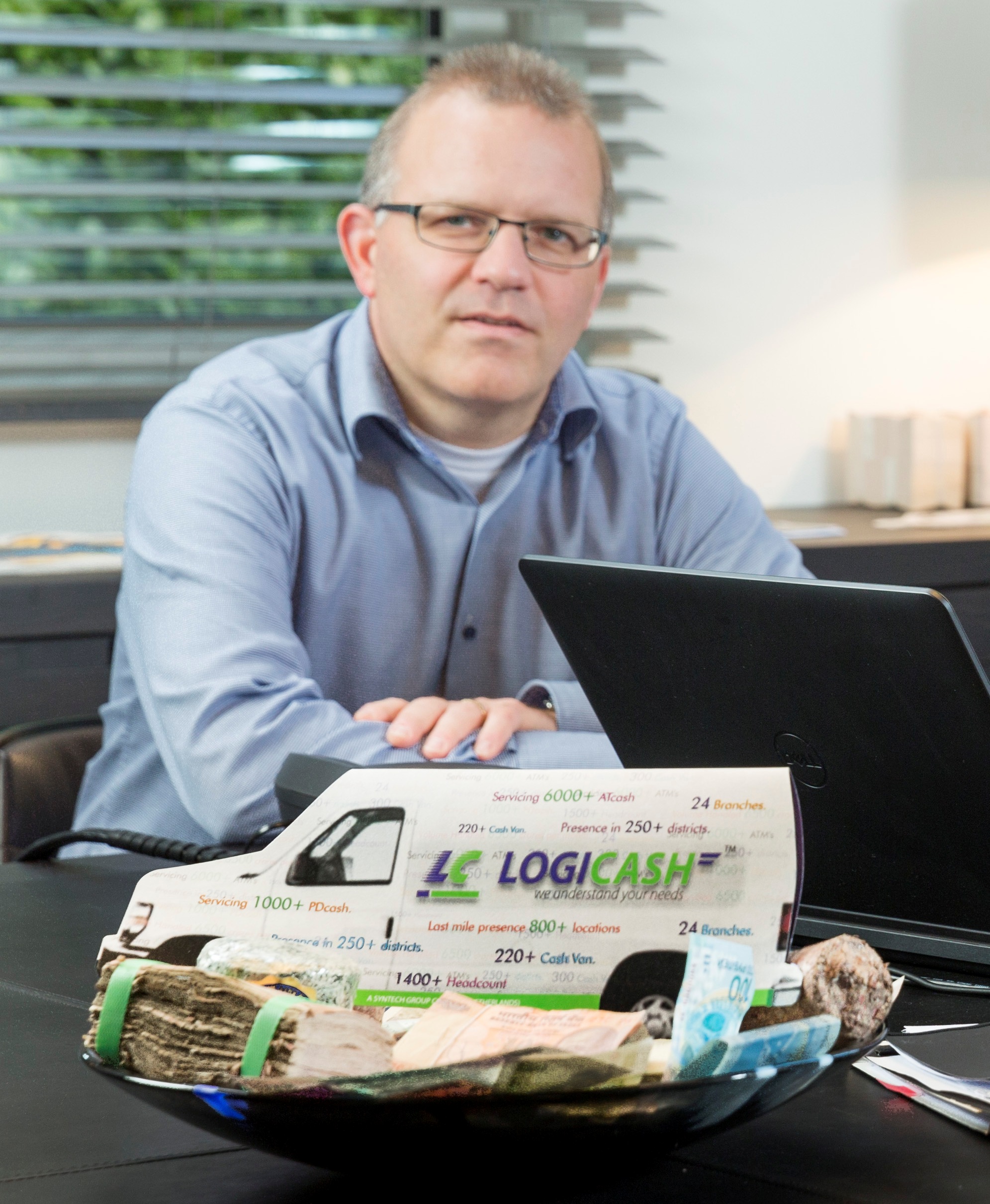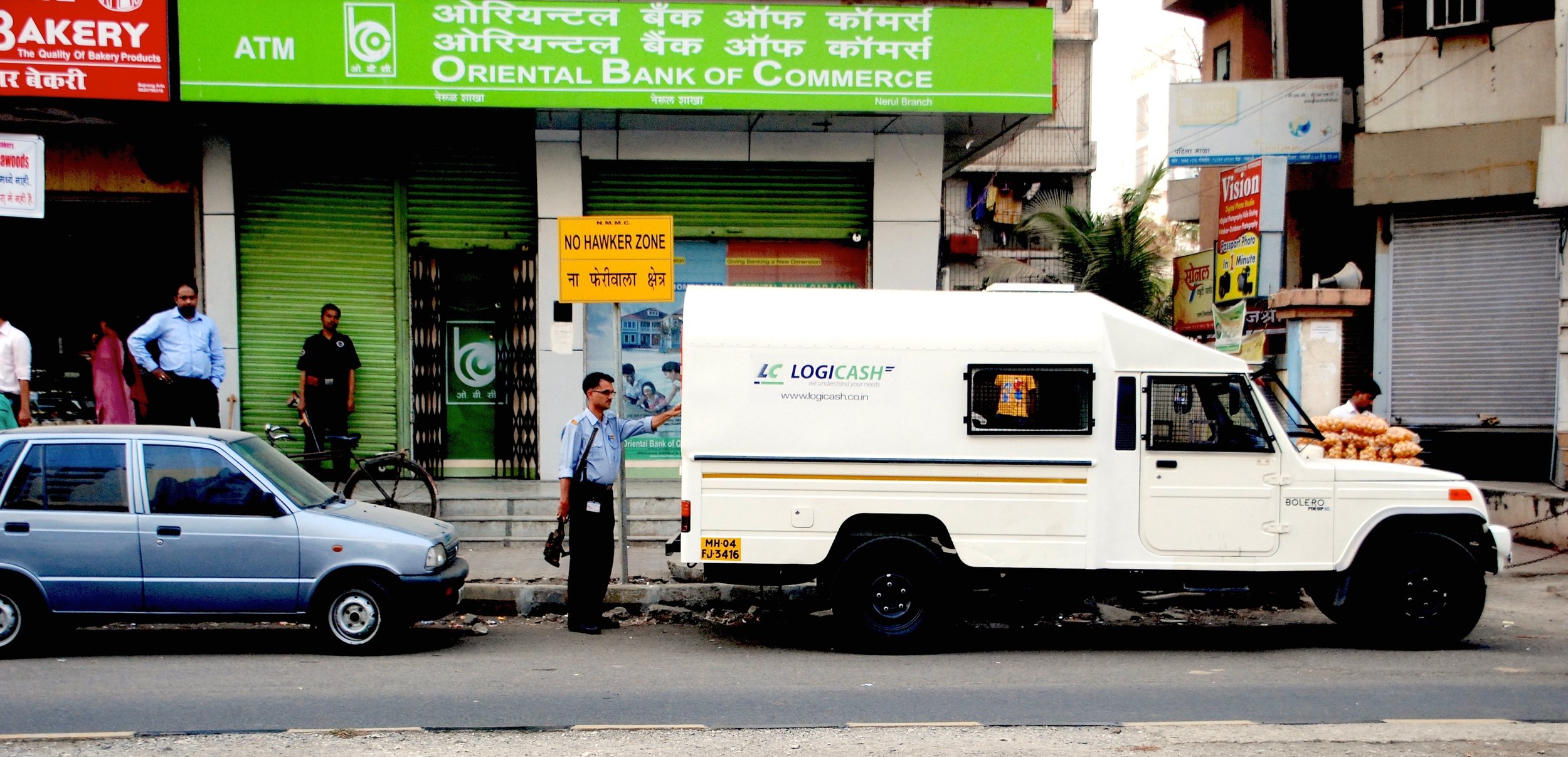Building a company and selling it successfully in just five years: few foreign companies in India manage to do that. Geert Litjens, CFO of Syntech International in Limburg, looks back on the sale of subsidiary Logicash.
LogiCash's transport vehicles in Mumbai (Photo: LogiCash)
Logicash is a prime example of a successful Dutch company in India. The money management and transport company that opened its doors in 2012 managed to grow into a top 3 player in India within five years. In February 2017, the company had 15,000 ATMs under management and four thousand employees. In recent years, the company benefited from the Indian government's desire to greatly expand the number of ATMs. In a 2015 interview with IndiaConnected, CFO Geert Litjens explains that Logicash's explosive growth is only hindered by a lack of growth capital. Dutch banks don't dare - only government fund Dutch Good Growth Fund wants to finance Logicash's growth. The conditions, however, are anything but favorable. Not only is the financing expensive, the Dutch parent company must also guarantee the loan.
That unfavorable financing was ultimately one of the reasons for selling Logicash early, Litjens now explains. "The company was running well, but a large part of the profits went to our financiers. We were left with relatively little. On top of that, the Indian subsidiary became very large in relation to our activities in the Netherlands."
The Indian subsidiary did become very large in relation to our activities in the Netherlands.
In addition, there was another reason to sell Logicash. The previous Indian government's mission to rapidly expand the number of ATMs was given less priority under the Modi government. "Modi actually wants Indians to pay less cash and more digitally," Litjens says. "For the middle class in the big cities, that is indeed an option, but for most of the country, that is not at all realistic." To accelerate that shift from cash to digital payments, Modi made his infamous demonetization decision on November 8. All 500 and 1000 rupee bills were withdrawn from circulation in one fell swoop. That first week, Logicash was very busy, but in the months that followed, the money supply stalled. "We had to work in total chaos," Syntech International top executive Pierre Hermans previously told FD about this.
Syntech International CFO Geert Litjens (photo: Syntech International)
At the time, talks on the sale of Logicash were already in full swing. The buyer, Mumbai-based Nisa Security, had known Litjens for some time. "Nisa employs more than 50 thousand guards who secure banks and ATMs throughout India, among other things. They have the same customer base as Logicash and were keen to expand their services." At first Litjens had a good impression of the company, but over time it became apparent that the company was inexperienced in the area of acquisitions. "We have a lot of experience with acquisitions and had a good Indian lawyer and tax advisor on our side - an absolute must - but the professionalism on their side was disappointing. For example, the company had no real CFO. In many Indian SMEs, the most senior financial man is the accountant. As a result, there were many misunderstandings and the process took forever. Moreover, Nisa wanted to negotiate every detail. On February 9, 2017, it was finally done. After 21 months."
The official transfer was also a lot more complex than Litjens is used to in the Netherlands. "Here you go to the notary and after an hour you're outside again. In India, there is no notary. There you spend a whole day with lawyers and banks from both parties going through all the steps. But at the end of the day, the purchase price is on its way to your bank account in the Netherlands."
We are certainly not leaving India.
Litjens has two tips for Dutch people who want to sell their business in India. "In India you pay tax on the profit from the sale of your shares. Thanks to the tax treaty between the Netherlands and India, you are entitled to a lower tax assessment, but you do need a certificate from the Indian tax authorities. You must apply for this certificate in good time. In addition, you must agree in advance with your bank on the rate at which the exchange rate the acquisition price will be transferred. That can save a lot of money."
LogiCash employee refills ATM machine in India (photo: LogiCash
Ultimately, Logicash has been a nice investment for Syntech international. "We made a reasonable profit from the sale. Still, we didn't make as big a hit as we thought at one point because the Indian government didn't follow through on its plans to expand the number of ATMs in smaller cities and rural areas." The DGGF was very pleased with this project, Litjens states. "With Logicash, we created four thousand jobs in India, we contributed to knowledge transfer, the entire investment was returned, and the fund also made a good profit. For good reason, they would have liked us to remain the owner even longer."
After the sale of Logicash, Syntech International is still active in India with two other companies. Moreover, it is already working on another Indian venture. Litjens: "We have adjusted our strategy. Syntech has become big with machines that destroy banknotes. At first we wanted to generate more business from the money cycle, but now we are back to our roots: building machines. In the Netherlands we focus on machines for the circular economy, recycling machines for example. We are now investigating whether we can market these Dutch solutions in India - with an Indian sauce, of course. No, we are certainly not leaving India."





